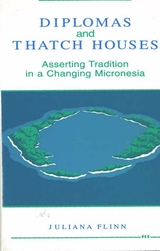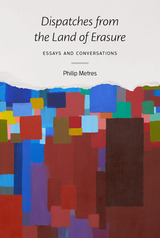
Novelists have individually distinctive ideas of dialogue, Aaron Fogel argues. In this analysis of Conrad's narrative craft he explores--with broad implications--the theory and uses of dialogue.
Conrad's was a distinctive reading of the English language conditioned by his particular idea of forced speech and forced writing. Fogel shows how Conrad shaped ideas and events and interpreted character and institutions by means of dialogues representing not free exchange but various forms of forcing another to respond. He applied this format not only to the obvious political contexts, such as inquisition or spying, but also to seemingly more private relations, such as marriage, commerce, and storytelling. His idea of dialogue shaded the meanings he gave to words even to characters' names. Conrad is particularly interested in scenes in which a speech-forcer is surprised, repudiated, or punished. Fogel concludes that Conrad increasingly saw the punishment of the speech-forcer as classically related to Oedipus inquiries, in which the provoked answers rebound upon and destroy the forcer. This punishment is--as Shakespeare, Scott, and Wordsworth also dramatically intuited--the classical Oedipal dialogue scene.
Fogel's analysis ranges widely over Conrad's fiction but focuses especially on Nostromo, The Secret Agent, and Under Western Eyes. His readings offer a balanced critique of Mikhail Bakhtin's theories about dialogic. Conrad's novels have many of the features Bakhtin identified as dialogical; but he was preoccupied with coercion in dialogue form. Fogel proposes that to understand this form is to begin to reconsider our political and aesthetic assumptions about what dialogue is or ought to be.
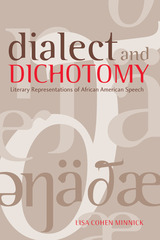
Applies linguistics methods for a richer understanding of literary texts and spoken language.
Dialect and Dichotomy outlines the history of dialect writing in English and its influence on linguistic variation. It also surveys American dialect writing and its relationship to literary, linguistic, political, and cultural trends, with emphasis on African American voices in literature.
Furthermore, this book introduces and critiques canonical works in literary dialect analysis and covers recent, innovative applications of linguistic analysis of literature. Next, it proposes theoretical principles and specific methods that can be implemented in order to analyze literary dialect for either linguistic or literary purposes, or both. Finally, the proposed methods are applied in four original analyses of African American speech as represented in major works of fiction of the American South—Mark Twain's Adventures of Huckleberry Finn, Charles W. Chesnutt's The Conjure Woman, William Faulkner's The Sound and the Fury, and Zora Neale Hurston's Their Eyes Were Watching God.
Dialect and Dichotomy is designed to be accessible to audiences with a variety of linguistic and literary backgrounds. It is an ideal research resource and course text for students and scholars interested in areas including American, African American, and southern literature and culture; linguistic applications to literature; language in the African American community; ethnicity and representation; literary dialect analysis and/or computational linguistics; dialect writing as genre; and American English.

Seeking to sustain Stein's lively, pleasant, populist spirit, Watson shows how the writer's playful entanglement of sight and sound--of silent reading and social speaking--reveals the crucial ambiguity by which reading and conversation build communities of meaning, and thus form not only personal relationships but also our very selves and the larger political structures we inhabit. Stein reminds us that the residual properties of words and the implications behind the give-and-take of ordinary conversation offer alternatives to linear structures of social order, alternatives especially precious in times of political oppression. For example, her novels Mrs. Reynolds and Brewsie and Willie, both written in embattled Vichy France, contemplate the speech patterns of totalitarian leaders and the ways in which everyday discourse might capitulate to--or resist--such verbal tyranny.
Like recent theorists, Stein recognized the repressiveness of conventional order--carried in language and thus in thought and social organization--but as Watson persuasively shows, she also insisted that the free will of individuals can persist in language and enable change. In the play of literary aesthetics, Stein saw a liberating force.
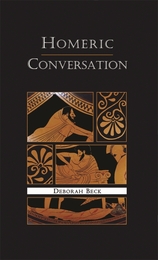
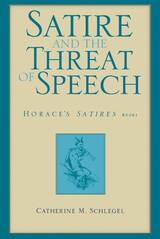
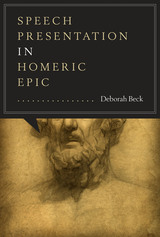
The Iliad and the Odyssey are emotional powerhouses largely because of their extensive use of direct speech. Yet this characteristic of the Homeric epics has led scholars to underplay the poems’ use of non-direct speech, the importance of speech represented by characters, and the overall sophistication of Homeric narrative as measured by its approach to speech representation. In this pathfinding study by contrast, Deborah Beck undertakes the first systematic examination of all the speeches presented in the Homeric poems to show that Homeric speech presentation is a unified system that includes both direct quotation and non-direct modes of speech presentation.
Drawing on the fields of narratology and linguistics, Beck demonstrates that the Iliad and the Odyssey represent speech in a broader and more nuanced manner than has been perceived before, enabling us to reevaluate our understanding of supposedly “modern” techniques of speech representation and to refine our idea of where Homeric poetry belongs in the history of Western literature. She also broadens ideas of narratology by connecting them more strongly with relevant areas of linguistics, as she uses both to examine the full range of speech representational strategies in the Homeric poems. Through this in-depth analysis of how speech is represented in the Homeric poems, Beck seeks to make both the process of their composition and the resulting poems themselves seem more accessible, despite pervasive uncertainties about how and when the poems were put together.

With increasing frequency, readers of literature are encountering barely intelligible, sometimes unrecognizable languages created by combining one or more languages with English. Evelyn Ch'ien argues that weird English constitutes the new language of literature, implicitly launching a new literary theory.
Weird English explores experimental and unorthodox uses of English by multilingual writers traveling from the canonical works of Nabokov and Hong Kingston to the less critiqued linguistic terrain of Junot Díaz and Arundhati Roy. It examines the syntactic and grammatical innovations of these authors, who use English to convey their ambivalence toward or enthusiasm for English or their political motivations for altering its rules. Ch'ien looks at how the collision of other languages with English invigorated and propelled the evolution of language in the twentieth century and beyond.
Ch'ien defines the allure and tactical features of a new writerly genre, even as she herself writes with a sassiness and verve that communicates her ideas with great panache.
READERS
Browse our collection.
PUBLISHERS
See BiblioVault's publisher services.
STUDENT SERVICES
Files for college accessibility offices.
UChicago Accessibility Resources
home | accessibility | search | about | contact us
BiblioVault ® 2001 - 2025
The University of Chicago Press


